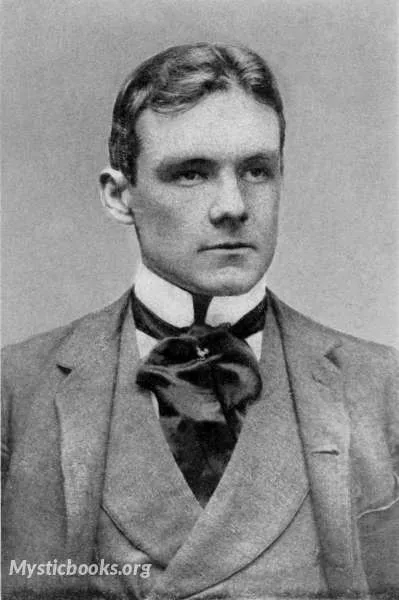
Timeline
Title
Country/Nationality
Richard Harding Davis
Richard Harding Davis was an American journalist and writer of fiction and drama, known foremost as the first American war correspondent to cover the Spanish–American War, the Second Boer War, and the First World War. His writing greatly assisted the political career of Theodore Roosevelt. He also played a major role in the evolution of the American magazine. His influence extended to the world of fashion, and he is credited with making the clean-shaven look popular among men at the turn of the 20th century.
Davis was born on April 18, 1864 in Philadelphia, Pennsylvania. His mother Rebecca Harding Davis was a prominent writer in her day. His father, Lemuel Clarke Davis, was himself a journalist and edited the Philadelphia Public Ledger. As a young man, Davis attended the Episcopal Academy. In 1882, after an unhappy year at Swarthmore College, Davis transferred to Lehigh University, where his uncle, H. Wilson Harding, was a professor. While at Lehigh, Davis published his first book, The Adventures of My Freshman (1884), a collection of short stories. Many of the stories had originally appeared in the student magazine the Lehigh Burr. In 1885, Davis transferred to Johns Hopkins University.
After college, his father helped him gain his first position as a journalist at the Philadelphia Record, but he was soon dismissed. After another brief position at the Philadelphia Press, Davis accepted a better-paying position at the New York Evening Sun where he gained attention for his flamboyant style and his writing on controversial subjects such as abortion, suicide and execution. He first attracted attention in May to June 1889, by reporting on the devastation of Johnstown, Pennsylvania, following the destructive flood. He added to his reputation by reporting on other noteworthy events such as the first electrocution of a criminal (the execution of William Kemmler in 1890).
Davis became a managing editor of Harper's Weekly, and was one of the world's leading war correspondents at the time of the Second Boer War in South Africa. As an American, he had the opportunity to see the war first-hand from both the British and Boer perspectives. Davis also worked as a reporter for the New York Herald, The Times, and Scribner's Magazine.
He was popular among a number of leading writers of his time, and is considered the model for illustrator Charles Dana Gibson's dashing "Gibson man", the male equivalent of his famous Gibson Girl. He is mentioned early in Sinclair Lewis' book Dodsworth as the example of an exciting, adventure-seeking legitimate hero.
Davis had success with his 1897 novel Soldiers of Fortune, which he turned into a play written by Augustus Thomas. His novel was filmed twice, in 1914 and in 1919 by Allan Dwan. The 1914 version starring Dustin Farnum was shot on the Cuban locations that Davis used in his novel, and Davis was present during the filming.
During the Spanish–American War, Davis was on a United States Navy warship when he witnessed the shelling of Matanzas, Cuba, a part of the Battle of Santiago de Cuba. His story made headlines, but as a result, the Navy prohibited reporters from being aboard any American naval vessel for the rest of the war.
Davis was a good friend of Theodore Roosevelt, and he helped create the legend surrounding the Rough Riders, of which he was made an honorary member. Some have even gone so far to accuse Davis of involvement in William Randolph Hearst's alleged plot to have started the war between Spain and the United States in order to boost newspaper sales; however, Davis refused to work for Hearst after a dispute over fictionalizing one of his articles.
Despite his alleged association with yellow journalism, his writings of life and travel in Central America, the Caribbean, Rhodesia and South Africa during the Second Boer War were widely published. He was one of many war correspondents who covered the Russo-Japanese War from the perspective of the Japanese forces.
Davis later reported on the Salonika Front of the First World War, where he was arrested by the Germans as a spy, but released.
Books by Richard Harding Davis

The Boy Scout And Other Stories For Boys
RICHARD HARDING DAVIS, as a friend and fellow author has written of him, was “youth incarnate,” and there is probably nothing that he wrote of which a boy would not some day come to feel the appeal. But there are certain of his stories that go with e...

Outside the Prison
In the darkest corners of a decaying world, one man's quest for redemption will test the boundaries of loyalty and justice. In a dystopian future where society has collapsed, leaving behind only crumbling remnants of civilization, the world has bec...

Miss Civilization
Miss Civilization, a one act comedy, tells the story of a young woman who matches wits with three burglars attempting to rob her house. This recording was made in Chicago at the LibriVox World Gathering in May 2007. Cast: Kristin Hughes Betsie Bush...

Notes of a War Correspondent
Notes of a War Correspondent is a collection of dispatches written by Richard Harding Davis, a journalist who covered some of the most important conflicts of the late 19th and early 20th centuries. These accounts provide a vivid and often harrowing g...

In the Fog
In the heart of London's elite gentlemen's club, "The Grill," a stranger captivates the attention of four gentlemen with a chilling tale. Lost in a thick fog one fateful night, he stumbles upon a house where a double murder has just occurred. The vic...

Make-Believe Man
In 'Make-Believe Man,' Joseph Forbes Kinney, a man with an overactive imagination, embarks on a journey aboard the steamer 'Patience.' His penchant for creating and embellishing stories leads him and his travel companion into a series of humorous mi...

Amateur
In 'Amateur' by Richard Harding Davis, Austin Ford, a skilled investigator, finds himself drawn into a puzzling case while traveling to London. He encounters a woman seeking his help in locating her missing husband. As Ford delves into the situation,...

Lost House
Lost House revolves around Austin Ford, a journalist stationed in London, who stumbles upon a cryptic note in a dark alley. The note pleads for help from a young girl imprisoned in a mental institution by her uncle. Intrigued by the message, Austin e...

Princess Aline
Princess Aline tells the story of Morton Carlton, a wealthy American artist who becomes infatuated with Princess Aline of Hohenwald after seeing her photograph in an illustrated paper. Determined to meet her, Carlton travels to Europe and navigates...

My Buried Treasure
In 'My Buried Treasure', a nameless narrator recounts a real-life expedition to uncover hidden riches. The narrative follows their journey through the Caribbean, navigating treacherous landscapes, encountering intriguing characters, and uncovering hi...

Lion and the Unicorn
Two animal figures, a lion and a unicorn, discuss the love affair between Philip Caroll and Helen Cabot in this classic short story.

Cynical Miss Catherwaight
Cynical Miss Catherwaight is a satirical novel that follows the story of Miss Catherwaight, a collector of "dishonored honors"—medals of honor pawned by the persons they were awarded to. Miss Catherwaight tends to look down on the former owners of th...

Wasted Day
This is a delightful little story about the most successful banker on Wall Street, who finds his philanthropic side when one of his former employees is arrested and needs someone to vouch for his character. The banker is initially reluctant to help,...

Men of Zanzibar
Set in the exotic backdrop of Zanzibar, 'Men of Zanzibar' follows the story of a mysterious protagonist, Hemingway, who immerses himself in the vibrant expatriate community while concealing his true identity. As he navigates the intricacies of this n...

Somewhere in France
Set against the backdrop of World War I, "Somewhere in France" tells the story of Marie Gessler, a German woman posing as a Frenchwoman to infiltrate the French military. Skilled in deception and possessing a deep understanding of French culture, Mar...

Spy
In Richard Harding Davis's "Spy," Mr. Crosby, a high-ranking official known for his secret government missions, finds himself unexpectedly in Valencia, a region embroiled in conflict. Despite his desire to remain uninvolved, his reputation draws him...

Unfinished Story
In 'Unfinished Story,' Richard Harding Davis weaves a captivating tale of adventure and the power of storytelling. The narrative unfolds at a dinner party where an author and a painter are challenged about their work's portrayal of reality. A young e...

Gallegher and other Stories
This collection of short stories by Richard Harding Davis features a diverse array of characters and settings, each captivating the reader with its intriguing narratives. The stories explore themes of adventure, mystery, and the complexities of human...

Three Gringos in Venezuela and Central America
In the late 19th century, three American adventurers set out on a journey through Central and South America, chronicling their experiences in this travelogue. Richard Harding Davis, a renowned travel writer and war correspondent, captures the sights...